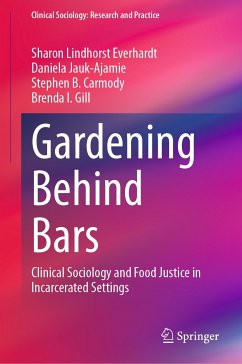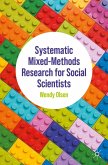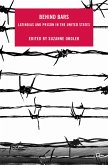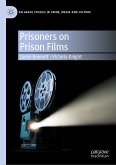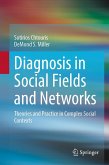Andria L. Blackwood, Ph.D., is an associate research scientist at the Wyoming Survey & Analysis Center at the University of Wyoming. She received her master's degree in Sociology and her PhD in Geography from Kent State University in Ohio. Her main research interests center on incarceration issues including the development and implementation of correctional programming for successful reentry, substance use disorder, and mental health. She is currently the lead evaluator of a reentry program for day reporting centers in Alabama and a Naloxone dispensing program in Arkansas. She worked as a research and grant specialist in community corrections for Oriana House Inc. from 2019-20 and was director of the horticulture program located at the community corrections facility for women. The program focused on embedding cognitive behavioral techniques to address social skills, problem solving, critical reasoning, and self-control within the directed leisure activity of gardening.
Stephen B. Carmody, Ph.D., is an anthropological archaeologist. He currently serves as an Associate Professor of Anthropology at Troy University, USA. He received his Ph.D. from the University of Tennessee, Knoxville, in anthropology with a specialization in archaeology and paleoethnobotany. His research focuses on the origins of agriculture, the origins of structural inequality, agricultural sustainability, and food justice. These themes are the focus of several recent publications including, "Agricultural Innovation and Dispersal in Eastern North America", in the Oxford Research Encyclopedia of Environmental Science; "The Context and Consequences of Sexual Harassment in Southeastern Archaeology", in Advances in Archaeological Practices; and "From the Past ... A More Sustainable Future?" in the Society for American Archaeology Archaeological Record. Stephen serves as an executive board member for the Tennessee Council of Professional Archaeologists and served on the Society for American Archaeology's Committee for Native American Relations as well as the Southeastern Archaeological Conference Sexual Harassment Committee. He currently conducts archaeological research excavations in North America and in Italy.
Sharon Lindhorst Everhardt, Ph.D., is an Associate Professor of Sociology at Troy University. She received her Ph.D. from Wayne State University in Sociology with a specialization in social inequality. Her main research interests include women from marginalized backgrounds and clinical sociology. Currently, her major projects concern poverty, food insecurity, social isolation, and community gardens in low-income areas of the Southeastern U.S. amongst marginalized populations as evidenced by recent publications, Can Gardening Help Address Food Insecurity and Social Isolation Among Older Adults? A Pilot Study in Rural Alabama in Activities, Adaptation & Aging and School Gardens: Unpacking the Potential to Reduce Food Insecurity Among Alabama's Children in Research in Political Sociology. Her previous work has focused upon women and families of color and homeownership, Meeting the Needs of Mother and Families?: Family Self-Sufficiency Programs and Goals of Homeownership in Michigan Family Review and Experiencing Race, Class, and Gender in Real Life: How Women Strive for Economic Self-sufficiency and Homeownership in Advances in Gender Research.
Brenda I. Gill, Ph.D., is a mixed-method prepared family sociologist employed at Alabama State University (ASU) as a Professor of Sociology in the Department of Criminal Justice and Social Sciences. Her scholarship includes her service on the editorial Board of The University of Guyana Press. She has been the Relationship Expert for the Alabama Prison Reentry program for the past 8 years. She received a Ph.D. in Family Sociology with a minor in Education from Wayne State University, Detroit Michigan, 2009. Her research focus is mostly international and generally examines topics related to families along with intersections of gender, age, race, religion, Socio-Economic status and other variables. Her research interests include: multiculturalism, diversity, family, media, violence, and other issues. Some of her more recent work includes an edited book with Sabella Abidde, Africans and the Exiled Life: Migration, Culture, and Globalization. Lanham, Maryland, Lexington Books. A government report for the Government of Guyana: Adolescent Health and Well-Being: Implications for Prevention and Intervention. A co-authored chapter: Contemporary Outmigration from CARICOM Countries: Its Impact and Potential for Growth of Diaspora Countries in George K. Danns, Ivelaw Griffith, and Fitzgerald Yaw, (Eds.). Dynamic of Caribbean Diaspora Engagement. People, policy, practice. University of Guyana Press, 2018.
Daniela Jauk, Ph.D., is an Assistant Professor of Sociology and Criminal Justice at the University of Akron, Ohio. She received a Master's in Sociology from the University of Graz in her home country of Austria. She completed her doctoral work in Sociology as a Fulbright student at the University of Akron, specializing in Qualitative Research Methodologies and Sociology of Deviance and Gender Studies. She has taught and published in these areas in Europe and the US, and was visiting assistant professor at the University of Graz, Austria from 2015 to 2017 before she returned to Akron. She worked as applied sociologist for Oriana House Inc. from 2018-19 gaining in-depth experience in corrections research, mixed methods research projects, and grant writing. She initiated a pilot project for women and several grant applications to introduce and assess the potential of horticultural therapy in community corrections.
Richard Ledet, Ph.D., is an Associate Professor of Political Science at Troy University. His doctorate is from the University of Notre Dame, where his studies focused on American and Comparative Politics. His research and teaching interests are on a wide range of public policy related topics, but he is most interested in providing explanations for the causes and consequences of economic inequality as well as disparities in political representation.

